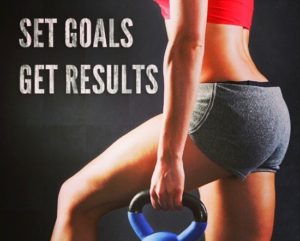What is Your Goal?
By Sebastian Mok
Your training and diet should depend on what your end goal is. Is it strength? Is it fitness? Is it fat loss? Is it muscle gain? Is it a bit of everything?
Is there a certain goal you wish to attain such as bench pressing 100kg (220lbs) or cutting 15kg (33lbs) of fat and gaining 10kg (25lbs) of lean muscle?
Goals are important as they give you something to aim for and will determine the path you take to achieve that goal. It is good to have a long-term goal and a short-term goal that you can tick off on the way to ensure you are on track and that you are being realistic. Give yourself a rough timeline for the short-term goal on the way to your longer-term one. Planning is essential.
Once you have established what it is you want to achieve, now you must make a plan and find out how you will achieve it. Be aware of how your body works and get to know it better. Everybody is different and some people react differently to different training methods as well as different diets.
A good starting point is finding out the points that are useful in attaining your goal. For example, if you want to lose a certain amount of weight and just generally get fitter by next year, what you need to find out is:
- Your current body weight in the morning before eating anything
- Your bodyfat percentage
- Your basal metabolic rate (BMR)
- What your daily maintenance macronutrient calories are
After you’ve established these points, it’s time to start taking action towards that weight loss and fitness goal by eating at a caloric deficit and training cardio as well as high volume hypertrophy range weight training.
Keep track of your progress by measuring your weight every week, in the morning before eating to keep it constant, as well as your BMR and cardiovascular fitness.
Take monthly photos of yourself, obviously the chances are you see yourself everyday in the mirror and will not notice any visual changes as much as others will. Photos are also a great way of keeping track of progress. Try to keep them consistent, from the same angles, distance and with the same pose and lighting.
Update your short-term goals as you reach them and be aware of the speed of your progress and your ability to achieve them. This way you will reach your short-term goals and eventually your long-term goal.



